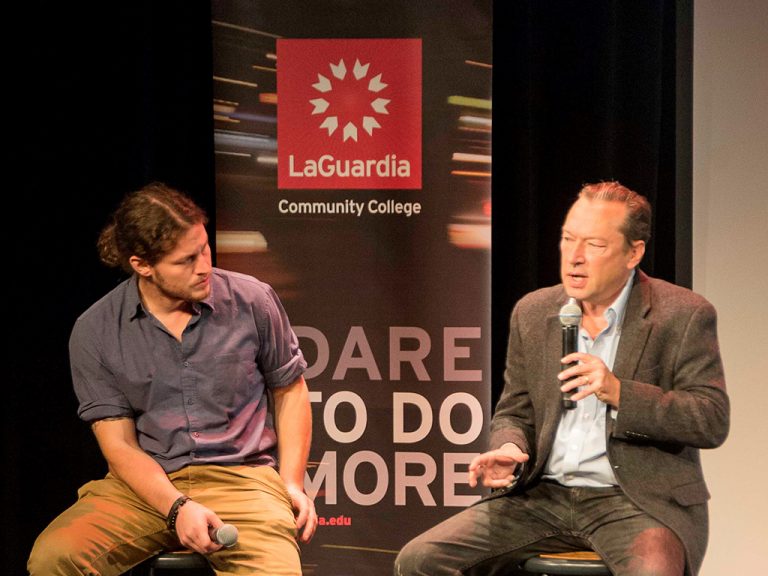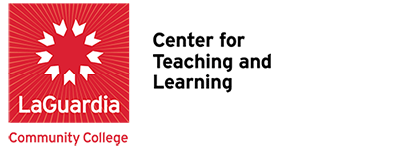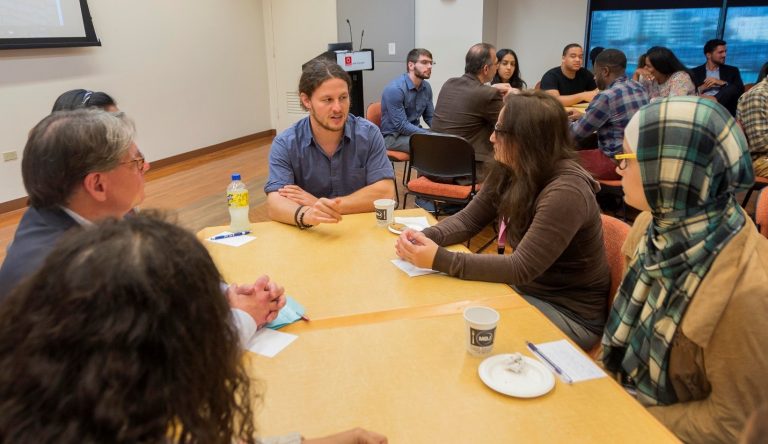
True Stories for Global Learning: NY Times Reporters Visit LaGuardia
 Journalism at its best combines immediacy and perspective, the urgency of news with the contextual background that helps us understand its causes. LaGuardia’s connection with the Pulitzer Center on Crisis Reporting provides us with access to practitioners of this craft at a very high level. That was the case on October 19 when, thanks to our Pulitzer partners, we hosted New York Times reporters Scott Anderson and Ben C. Solomon for a day of conversations, questions, and informed answers.
Journalism at its best combines immediacy and perspective, the urgency of news with the contextual background that helps us understand its causes. LaGuardia’s connection with the Pulitzer Center on Crisis Reporting provides us with access to practitioners of this craft at a very high level. That was the case on October 19 when, thanks to our Pulitzer partners, we hosted New York Times reporters Scott Anderson and Ben C. Solomon for a day of conversations, questions, and informed answers.
A veteran reporter with decades of experience in the Middle East, Anderson is the author of Fractured Lands: How the Arab World Came Apart, a landmark publication that took up the entire August 14, 2016 issue of the Sunday Times Magazine. Accompanied by haunting still photographs by acclaimed photojournalist Paolo Pellegrin, Fractured Lands opens our eyes and minds to a part of the world that as Americans we have seldom understood accurately by weaving the stories of six vividly rendered individual lives into a larger narrative of unfolding events over the past 15 years in Egypt, Iraq, Syria, and Libya. Learning about lives torn apart by war, invasion, and revolution, we are compelled to look directly at what Scott Anderson called “the heart of the world’s gravest concern.”
Ben Solomon’s Pulitzer Prize-winning skills as a video journalist and reporter have been evidenced in his coverage of the Ebola epidemic in West Africa, and from war zones in Ukraine, Libya, and Syria. Last summer, Solomon created a remarkable video record of his experience embedded with an Iraqi army unit confronting ISIS during their invasion of the Iraqi city of Falluja. “The Fight for Falluja”, a companion piece to “Fractured Lands”, utilizes virtual reality video technology and provides the viewer a gripping, immersive experience.
Anderson and Solomon spent a full day at LaGuardia. In the morning, nearly 200 people, mostly students and many attending with classmates, filled the Little Theater and heard our guests describe their experiences, provide both knowledge and clarity in a context—the contemporary Middle East—that badly needs both, and respond to sharp and intelligent student questions.
A lunch with 15 invited guests followed and became something like an impromptu seminar, with LaGuardia faculty, staff, and students exchanging insights and questions with our guests. Finally, upward of 75 people gathered in E-500 for the afternoon session, which featured breakout group discussions (in which Scott and Ben avidly participated), and concluded with another deeply insightful round of Q&A. It was a deeply engaging day of co-curricular global learning for everyone.




